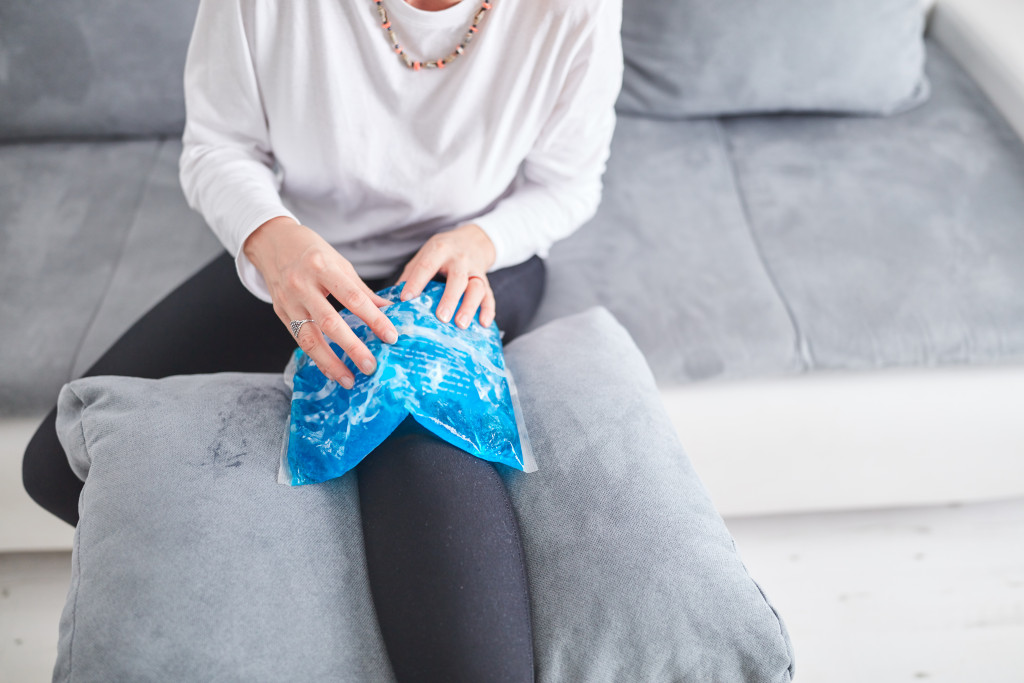- Neck spasms, often caused by stress, poor posture, or whiplash, result in muscle pain and discomfort
- In a modern lifestyle, bad postures and stress can enhance the risk of developing neck spasms.
- Improper sleeping posture and muscle strain from heavy weight lifting can cause neck spasms.
- Botox, heat/ice therapy, stretching, and over-the-counter pain relievers can effectively manage neck spasms.
- Always consult a medical professional for the correct diagnosis and treatment of persistent neck spasms.
It is quite common for individuals to experience neck spasms or neck muscle strain at some point in their lives. Neck spasms can be incredibly uncomfortable and make it challenging to carry out everyday activities. In most cases, neck spasms last only a few days and can be treated with heat/ice, pain relievers, or other forms of physical therapy. Here’s a look into neck spasms, their leading reasons, and how to deal with them.
What Are Neck Spasms?
Neck spasms are involuntary muscle contractions in the neck, shoulders, and upper back region. They can be described as a sudden and intense tightening of the muscles that can cause pain and stiffness. Neck spasms often occur due to overuse or strain of the affected muscles, which causes them to become inflamed and irritated.
Common Causes of Neck Spasms
There are many reasons for neck spasms, but some are more common. Here are some of those common causes:
1. Poor Posture
One common cause of neck spasms is poor posture. With more people working from home, staying indoors for longer periods, or performing activities for extended periods, it is easy to slouch or remain in a position that can lead to injury. When the head and neck are slouched forward for extended periods, muscles in the neck and shoulders become tense, leading to spasms or even severe pain. Elevate your computer screen to eye level, sit up straight when working, and stretch the neck and shoulder muscles during regular breaks. These countermeasures can reduce the chances of developing neck spasms due to bad postures.

2. Stress
Modern lifestyle presents many challenges that can lead to stress, which can culminate in neck spasms, among other physical and psychological illnesses. People experiencing stress may feel tension in their necks and shoulders, leading to muscle spasms and pain. Stress management practices, including regular exercise, deep breathing, positive thinking, and sleeping well, can help manage stress and lower the risk of neck muscle strain.
3. Whiplash
Neck spasms may also be caused by whiplash resulting from a car accident or some other traumatic event. In this case, the neck muscles can become sore and strained, leading to spasms and other symptoms like dizziness, headache, and difficulty moving the neck. To avoid further injury, pay attention to instructions from medical professionals and seek treatment that can include pain medications, physical therapy, or even surgery.
4. Poor Sleeping Posture
Neck spasms can also result from improper sleeping posture or pillow use. A pillow with the wrong size and shape can cause the neck to bend unnaturally, thus causing muscle strain and eventual spasms. Use a thin pillow or none if you need to sleep on your stomach. Ensure that your pillow does not bend your neck but provides a neutral position to help align the head, neck, and shoulder.
5. Muscle Strain
Neck spasms can also result from activities that over-exert the neck muscles, like lifting heavy weights without support or playing contact sports, including frequent head or neck collisions. To avoid this type of neck spasm, lift weights properly and take regular breaks during activity to rest your neck muscles.
Ways to Deal with Neck Spasms
Neck spasms can be incredibly uncomfortable and interfere significantly with daily activities. Here are some tips on how to deal with them:
Botox
Many people don’t know this, but certain skin treatments can treat neck spasms. One of the best options is botox treatment. It works by temporarily blocking muscle contractions, which helps reduce the intensity and frequency of neck spasms. It is administered by a medical professional and can provide relief for up to three months.

Heat/Ice Therapy
Applying heat or ice to the affected area can help relieve pain and reduce inflammation caused by neck spasms. Applying heat increases blood flow to the area and promotes muscle relaxation, while ice helps reduce inflammation and numb the pain. Alternate between heat and ice for 15-20 minutes each session for maximum effectiveness.
Stretching
Gentle neck stretching exercises can help relieve muscle tension, helping alleviate neck spasms. Slowly move your head from side to side, up and down, and rotate it in a circular motion. Avoid forcing the stretches and stop if you feel any pain.
Over-the-counter Pain Relief
In mild cases, Over-the-counter (OTC) pain relievers like ibuprofen or acetaminophen can help alleviate neck spasm-related pain. However, if OTC medications do not relieve the pain or the neck spasms persist, consult a medical professional.
Neck spasms can be uncomfortable and interfere with daily activities. By understanding their causes, individuals can take steps to avoid developing them in the first place. If neck spasms occur, several remedies, including heat/ice therapy, stretching exercises, or medical treatments, and pain relievers, can help manage them effectively. Remember to consult a medical professional for proper diagnosis and treatment of neck spasms.











